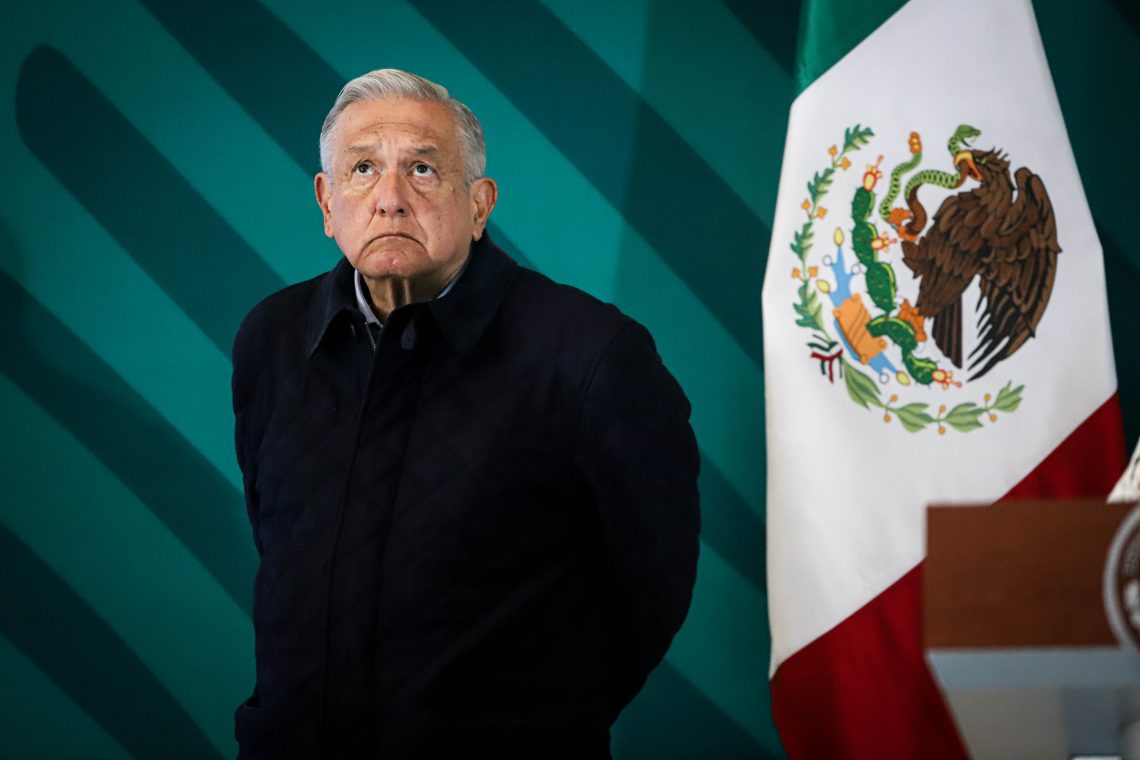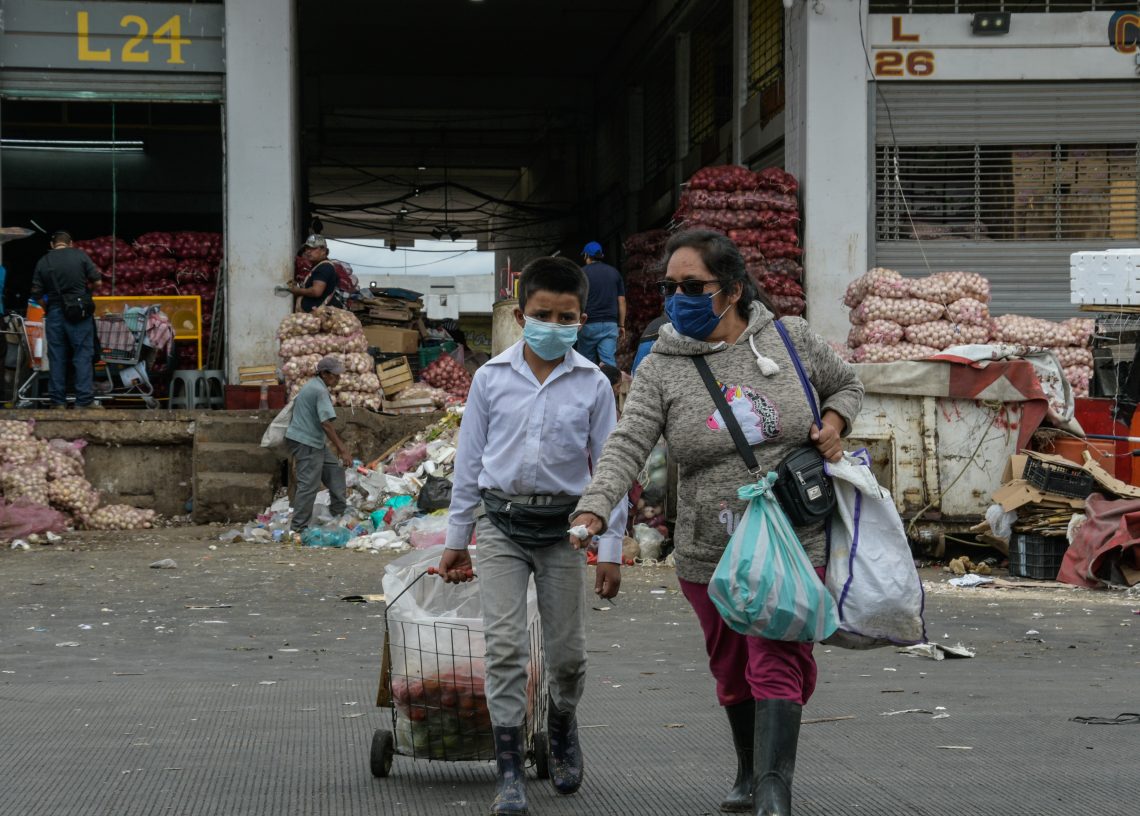Scenarios for Mexico under AMLO
The AMLO presidency has been a setback for Mexico, but a new generation of leaders could come to power and tap into the country’s geopolitical and economic potential.

In a nutshell
- AMLO has focused on consolidating his power
- Mexico has retreated from the world stage
- State control over strategic sectors has harmed the economy
Since coming to power in 2018, Mexican President Andres Manuel Lopez Obrador (AMLO) has weakened institutions and undermined checks and balances to concentrate power. This has allowed him to reverse many of the reforms implemented by the previous administrations of Felipe Calderon Hinojosa (2006-2012) and Enrique Pena Nieto (2012-2018).
When it comes to foreign policy, one of the president’s favorite quotes is: “the best foreign policy is a domestic one.” He has only traveled abroad three times since coming to power. Instead, AMLO has focused on his domestic and electoral agenda. He has a majority in Congress and considerable influence over the Supreme Court. All policy decisions go through the president.
If the current policies of clientelism and militarization continue, democracy could come under greater threat.
Mexico has played an important role in international and multilateral organizations such as the G20, the Organization for Co-operation and Security in Europe (OSCE) and the World Trade Organization (WTO). Few other nations have more free trade agreements. It has 13 alliances with 50 countries, 32 Reciprocal Promotion and Protection Agreements with 33 countries and nine agreements within the framework of the Latin American Integration Association (ALADI).
But all of this has taken a back seat while the current administration tries to implement its political projects.
Mexico’s politics
AMLO and his party – the National Regeneration Movement, or MORENA – are intent on doing away with “neoliberalism” – a label that applies to everyone who opposes their agenda.
The government has been transferring money directly to the poorest to gain voter approval. The armed forces are now responsible for huge infrastructure projects and control strategic areas such as ports, airports and customs.
Poverty has worsened, and 55.7 million Mexicans (almost 44 percent of the population) now live below the poverty threshold. Some 11 million people live in extreme poverty.
In the first scenario, if the current policies of clientelism and militarization continue, democracy could come under greater threat. AMLO could seek reelection or attempt to impose his successor at any price. If MORENA remains in power after the election in 2024, this would represent a lost decade for Mexico. Unfortunately, this is the most likely scenario.
In a second scenario, the opposition could reinvent itself and new leaders could emerge to offer alternative solutions. If a single opposition candidate is strategically backed by civil society and the private sector in the near future, then Mexico could undo the adverse consequences of AMLO’s policies after 2024. This scenario is somewhat likely.

Mexico’s economy
Mexicans are paying a high cost for the economic decisions of the current administration. The government has tightened its control over the most strategic sectors, like the electricity industry. The 2013 energy reform that liberalized the electricity sector, opening space to new players, clean energy and foreign investment, has been rolled back. Mexico has enormous renewable energy potential, but AMLO is betting on oil and coal.
The two large state-owned companies, Petroleos Mexicanos (PEMEX) and the Federal Electricity Commission (CFE), are a risk for public finances. S&P Global Ratings has warned about the possibility of lowering Mexico’s rating in 2022 because of the magnitude of the government support the two firms receive.
In the first scenario for Mexico’s economy, the country could regress. A proposed energy reform bill, if approved, “would force investors to go to international panels, such as those of the T-MEC (the free trade agreement between Canada, Mexico and the United States), to protect $44 billion dollars of investment at risk of confiscation and indirect expropriation. It would also expose Mexico to international state-state controversies.” warns Mexico’s Business Coordinating Council (CCE).
The reform, in addition to violating international agreements, would result in serious economic consequences. It would increase the cost of electricity since it would privilege generation from the CFE, which is up to 252 percent more expensive than that of the private sector. This would create inflationary pressure.
New victories of the socialist left in Latin America would provide AMLO with more allies.
The new bill would put a hole in the national economy. The total cost of production would rise by at least $3 million per year. The reform would also hamper the green transition. The CCE estimates that Mexico would increase its greenhouse gas emissions by more than 46 percent. This would also put at risk the commercial relationship with Mexico’s main trading partners, the U.S. and Canada. This scenario is moderately likely.
In a second scenario, U.S. legislators’ concerns could convince the government to reconsider its plans and amend the reform. S&P Global Ratings states that cautious macroeconomic management and better dialogue between the parties to the T-MEC would boost investor confidence in Mexico. If the president agrees to follow expert recommendations and adjusts the proposed bill, the country’s ratings and T-MEC would be safe, at least in the short term. This is the most likely scenario.
Mexico’s foreign policy
Mexico’s foreign policy has undergone substantial change since AMLO came to power in 2018. The president and his party have a close relationship with the Sao Paulo Forum, a conference of leftist Latin American parties with ties to China, Russia and Iran. Although the Mexican foreign secretary has condemned the Russian invasion of Ukraine, the president has declined to comment directly on the situation and refused to impose sanctions on Russia.
Mr. Lopez Obrador has criticized the Organization of American States for denouncing the dictatorships of Cuba, Venezuela and Nicaragua. He has received former Bolivian President Evo Morales and extolled his friendship with Argentina’s President Alberto Fernandez and Brazil’s Dilma Rousseff, whom he invited to a commemorative event in Mexico City among other socialist leaders. The foreign minister has praised the new president of Chile Gabriel Boric, the Venezuelan dictator Nicolas Maduro and Nicaragua’s authoritarian leader Daniel Ortega.
In an event on the anniversary of Simon Bolivar’s birth, AMLO made clear his support for the Bolivarian revolution promoted by Fidel Castro and Hugo Chavez, whom he has praised as role models on several occasions.
His guest of honor at the Independence Day celebrations in 2021 was the Cuban dictator Miguel Diaz-Canel, and he often praises Cuba for being an “example of resistance” to U.S. influence. It is no coincidence that his first negotiations to buy vaccines during the pandemic were with Russia (Sputnik) and China (CanSino and Sinovac).
These alliances boost China, Russia and Iran’s preexisting influence in Latin America. Of all the countries in the region, Mexico is the most attractive because it shares a border of more than 3,000 km with the U.S. These major international allies have emboldened the president to defy Washington, like with the energy reform bill.
In the first scenario, Mexico becomes a crucial nexus of conflict between the great powers of the world. AMLO would continue to give ground to the interests of drug traffickers, guerrillas and socialists who converge in the Sao Paulo Forum as long as they offer him support to keep his political project alive. Mexico would alienate its Western allies like the U.S., Canada and the European Union, which have already condemned on several occasions Mexico’s weak rule of law, frequent murder of journalists and other violations of human rights, as well as high carbon emissions. This scenario is somewhat likely.
In a second scenario, new victories of the socialist left in Latin America would provide AMLO with more allies, and together they would advance their common agenda. This is already visible with the recent victories of Pedro Castillo in Peru and Gabriel Boric in Chile. In 2022, Colombia and Brazil could also accelerate the trend if Gustavo Petro and Luiz Inacio Lula da Silva win. There could be a regional push to implement the agenda of the Sao Paulo Forum. Unfortunately, this is the most likely scenario.
All of these scenarios show that Mexico’s economy, political scene and foreign policy have been affected by the decisions of the Lopez Obrador administration and MORENA. Only emerging leaders with a completely new mindset could inspire and lead the transformation of a country with the challenges at hand. If this happens, Mexico could become a major geopolitical player and advocate for a freer world.








